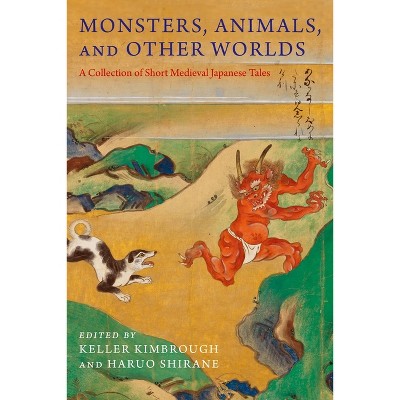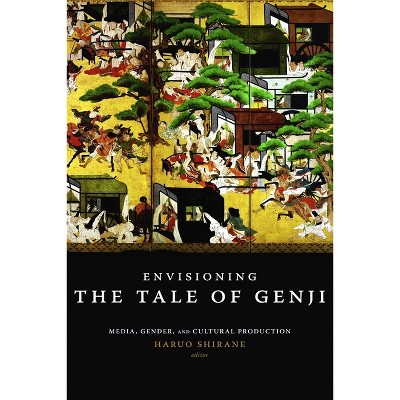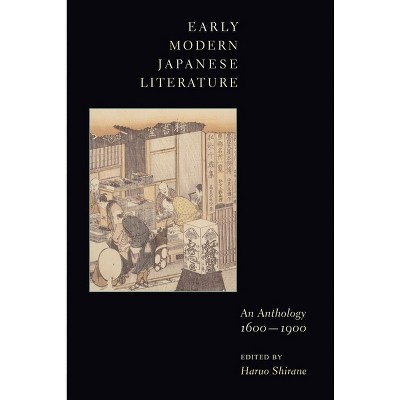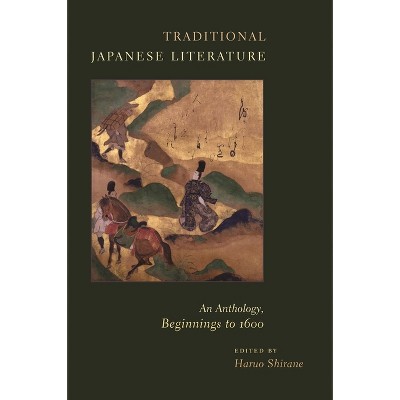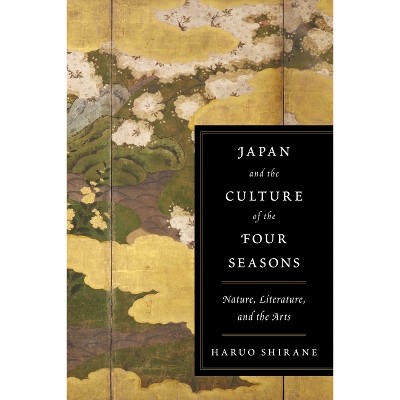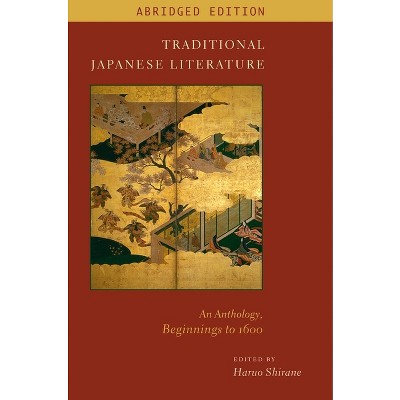Inventing the Classics - by Haruo Shirane & Tomi Suzuki (Paperback)

About this item
Highlights
- Today the term "Japanese literary classics" implies such texts as the Man'yoshu, Kojiki, Tale of Genji, Tale of the Heike, Noh drama, and the works of Saikaku, Chikamatsu, and Basho, which are considered the wellspring and embodiment of Japanese tradition and culture.
- About the Author: Haruo Shirane is Shincho Professor of Japanese Literature at Columbia University.
- 352 Pages
- Literary Criticism, Asian
Description
About the Book
Shirane and Suzuki examine how the Japanese canon of "classics" (The Tale of Genji, The Tale of the Heike, Noh drama, Saikaku, Chikamatsu, and Basho) was constructed as part of the creation of Japan as a modern nation-state and as a result of Western influence.Book Synopsis
Today the term "Japanese literary classics" implies such texts as the Man'yoshu, Kojiki, Tale of Genji, Tale of the Heike, Noh drama, and the works of Saikaku, Chikamatsu, and Basho, which are considered the wellspring and embodiment of Japanese tradition and culture. Most of these texts, however, did not become "classics" until the end of the nineteenth century, in a process closely related to the emergence of Japan as a modern nation-state and to the radical reconfiguration of notions of literature and learning under Western influence. As in Europe and elsewhere, the construction of a national literature and language with a putative ancient lineage was critical to the creation of a distinct nation-state.
This book addresses the issue of national identity and the ways in which modern European disciplinary notions of "literature" and genres played a major role in the modern canonization process. These "classics" did not have inherent, unchanging value; instead, their value was produced and reproduced by various institutions and individuals in relation to socio-economic power. How then were these texts elevated and used? What kinds of values were given to them? How was this process related to larger social, political, and religious configurations?
This book, which looks in depth at each of the major "classics," explores these questions in a broad historical context, from the medieval period, when multiple canons competed with each other, through the early modern and modern periods. Throughout, the essays focus on the roles of schools, commentators, and socio-religious institutions, and on issues of gender. The result is a new view of the transformation of the Japanese canon and its intimate connection with the issue of national and cultural identity.
From the Back Cover
Today the term "Japanese literary classics" implies such texts as the Man'yoshu, Kojiki, Tale of Genji, Tale of the Heike, Noh drama, and the works of Saikaku, Chikamatsu, and Basho, which are considered the wellspring and embodiment of Japanese tradition and culture. Most of these texts, however, did not become "classics" until the end of the nineteenth century, in a process closely related to the emergence of Japan as a modern nation-state and to the radical reconfiguration of notions of literature and learning under Western influence. As in Europe and elsewhere, the construction of a national literature and language with a putative ancient lineage was critical to the creation of a distinct nation-state.This book addresses the issue of national identity and the ways in which modern European disciplinary notions of "literature" and genres played a major role in the modern canonization process. These "classics" did not have inherent, unchanging value; instead, their value was produced and reproduced by various institutions and individuals in relation to socio-economic power. How then were these texts elevated and used? What kinds of values were given to them? How was this process related to larger social, political, and religious configurations?
This book, which looks in depth at each of the major "classics," explores these questions in a broad historical context, from the medieval period, when multiple canons competed with each other, through the early modern and modern periods. Throughout, the essays focus on the roles of schools, commentators, and socio-religious institutions, and on issues of gender. The result is a new view of the transformation of the Japanese canon and its intimate connection with the issue of national and cultural identity.
Review Quotes
"Inventing the Classics fills a major gap in Japanese literary studies in its presentation of ten original, sophisticated, and cogently argued essays on the process of the construction of 'Japanese literature' as it is known today. The volume combines a richly detailed historical approach to the study of canon formation with a nuanced theoretical discussion of the relevance of canon formation to the formation of a Japanese cultural and national identity. It also sheds important light on the changing socio-political function of specific works and genres."--Janet Walker, Rutgers University
"The collection presents a truly significant contribution to the study of Japanese literature. . . . All the essays are solidly researched and lucidly written, and the volume is certain to be widely used and cited."--Journal of Asian Studies
About the Author
Haruo Shirane is Shincho Professor of Japanese Literature at Columbia University. His most recent book is Traces of Dreams: Landscape, Cultural Memory, and the Poetry of Basho (Stanford, 1998). Tomi Suzuki is Associate Professor of Japanese Literature at Columbia University. She is the author of Narrating the Self: Fictions of Japanese Modernity (Stanford, 1996).Shipping details
Return details
Trending Poetry






